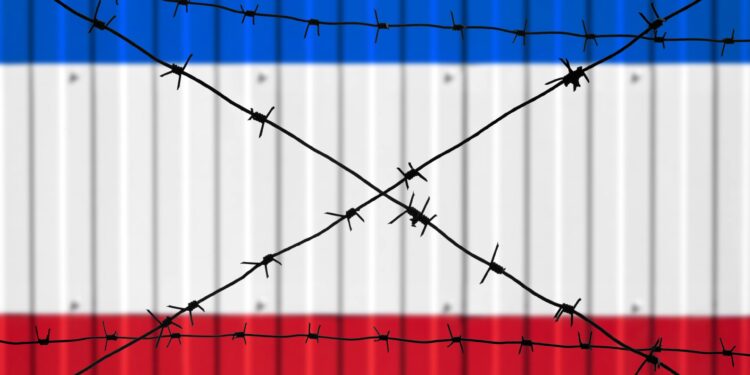6/7/2024–|Last update: 6/7/202408:01 PM (Makkah Time)
Executives gathered at a conference in southern France expressed concerns about the country’s emerging business climate, fearing that political turmoil following early elections could significantly impact the economic environment, Bloomberg reported in a recent report.
Regardless of the election outcome, business leaders expect a more turbulent period ahead, according to Bloomberg.
Even if Marine Le Pen’s far-right National Rally party falls short of an absolute majority, the alternative could be political gridlock, complicating efforts to address France’s budget deficit and halting Macron’s pro-business reforms, Bloomberg reported.
This uncertainty has led to a wave of selling of French assets, higher borrowing costs and lower stock prices, according to the agency.
Economic impacts
Bloomberg notes that the current French political scene has caused great concern among the country’s economists and business leaders.
Marie-Pierre de Billiancourt, director general of the Institut Montaigne, stressed the importance of managing debt and public deficits, saying in an interview with Bloomberg TV: “The main issue is not what will happen on Sunday, but how we will manage our debt and public deficits because, ultimately, the fiscal path is what matters.”
The Montaigne Institute estimates that the left-wing New Popular Front’s campaign pledges will require around €179 billion ($194 billion) annually, while the far-right National Rally’s plans will cost around €71 billion. Macron’s party and its allies are proposing an additional spending of around €21 billion.
Business morale
France’s main business lobby group, MEDEF, has described both the far-right and left-wing platforms as “dangerous” for the economy, Bloomberg reported.
The financial situation had already weighed on business sentiment ahead of the early election, with Emmanuel Macron’s government reviewing long-term budget plans earlier this year, the agency said.
Last month, Standard & Poor’s downgraded France’s credit rating and the European Union put it under excessive deficit measures.
Polls suggest the far-right National Rally party could win between 170 and 250 seats in the 577-seat lower house of parliament, short of the 289 seats needed to easily pass the legislation.
The New Popular Front coalition is expected to win between 140 and 198 seats, while Macron’s group is expected to win between 115 and 162 seats.
Energy and Economic Policies
Energy issues were a focal point of the election campaign, with both the far right and left promising subsidies to protect consumers from rising energy costs.
The potential shift in political power represents a major change for French companies, which have benefited for seven years from Macron’s pro-business policies.
Rival parties have pledged to roll back many of the president’s reforms, including abandoning pension reforms and raising taxes. Even Macron’s Ennahda party updated its manifesto with new spending commitments, according to Bloomberg.



